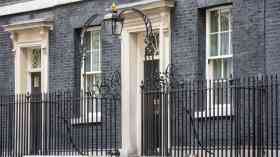Government commits to tackling childhood obesity

The government has committed to tackling childhood obesity, as new figures reveal that 10.5 per cent of children in reception and 22.2 per cent of year 6 children are living with obesity.
The figures cover data from over 1.1 million children measured across state-maintained schools in England during the academic year 2024/25 (before the government’s current public health interventions came into effect).
Excluding the pandemic peak, this is the highest obesity prevalence seen in reception since measurements began in 2006 to 2007.
Children from Black ethnic groups are more likely to be living with obesity and obesity prevalence is more than double in the most deprived areas compared to the least deprived. The deprivation gap has also widened.
In order to tackle the issue, the government has introduced restrictions on junk food advertising and high-caffeine energy drinks and expanded free school meals and the universal free breakfast clubs.
It is hoped that restricting junk food and drink advertisements on tv before 9pm and online will remove up to 7.2 billion calories per year from children’s diets.
Promotions such as “buy one get one free” and “3 for 2” on less healthy foods have also been restricted and this is projected to deliver health benefits worth £2 billion and NHS savings of £180 million over 25 years.
Consultations are ongoing to to ban retailers from selling high-caffeine energy drinks to children under 16. This could prevent obesity in up to 40,000 children.
Around 100,000 children currently consume at least one high-caffeine energy drink daily and evidence links these drinks to negative impacts on physical and mental health, sleep quality, and educational outcomes.
Health and Social Care Secretary, Wes Streeting said: "This government will not look away as kids get unhealthier and critics urge us to leave them behind. Obesity robs children of the best possible start in life, sets them up for a lifetime of health problems, and costs the NHS billions.
"Today’s figures show the extent of the problem and the need to act now, which is exactly what we’re doing – in schools, on sports pitches, and online – to make healthy choices the easy choices, support families, and turn the tide on childhood obesity. This is prevention, not punishment, and will help families and children across the country."
Professor Simon Kenny, NHS National Clinical Director for Children and Young People said: "These figures are extremely concerning – obesity can have a devastating impact on children’s health, increasing their risk of type 2 diabetes, cancer, mental health issues, and many other illnesses, which can sadly lead to shorter and unhappier lives.
"The NHS is transforming the lives of thousands of children and families impacted by severe weight issues through its specialist clinics, supporting them to lose weight, live healthier lives and improve their mental health through a personalised package of support, but prevention is key and continued joined-up action by industry and wider society is essential if we want to improve the health of our younger generations."







